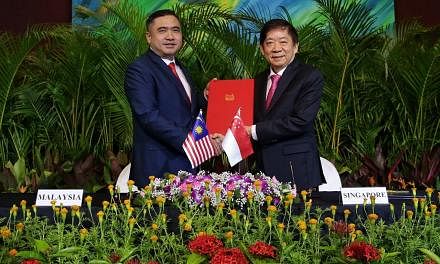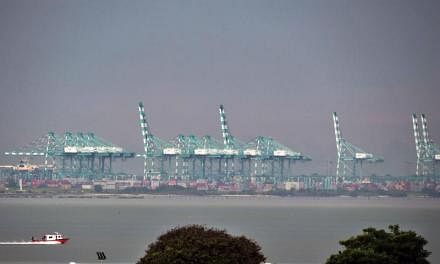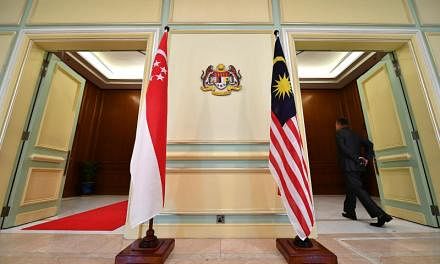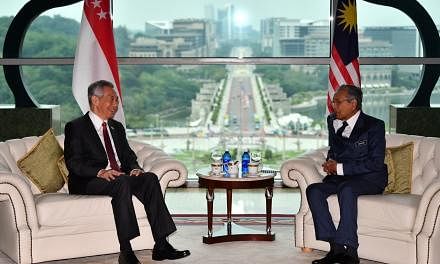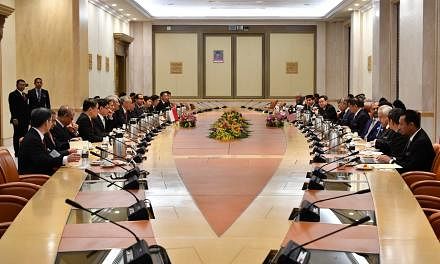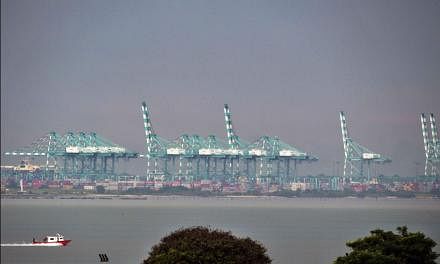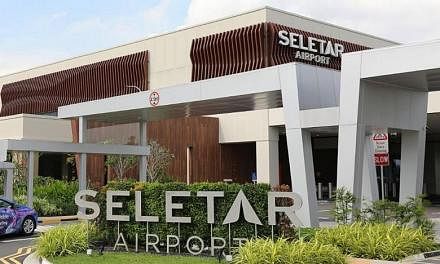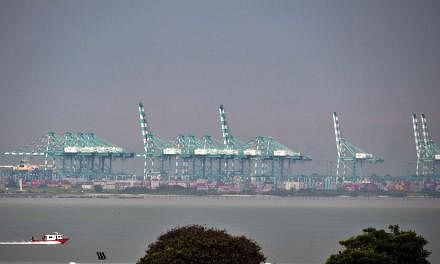SINGAPORE - Management of the skies has "nothing to do with sovereignty", said Transport Minister Khaw Boon Wan on Tuesday (Dec 4), after Malaysia signalled it wanted to reclaim its rights to run the airspace over southern Johor.
Mr Khaw said the airspace was delegated to Singapore's management under an agreement with regional states, including Malaysia, in 1973, and this was approved by an international body, the International Civil Aviation Organisation (ICAO).
Moreover, it is not a "straightforward" decision to just alter the status quo, and under ICAO processes, there must be a reason for the change such as improvements to safety and efficiency, Mr Khaw told reporters at Seletar Airport.
Mr Khaw was responding to his counterpart, Malaysian Transport Minister Anthony Loke, who told Parliament on Tuesday that Malaysia intends to take back the delegated airspace over South Johor in stages, starting next year.
The move follows Malaysia's objection to new flight procedures being proposed for Seletar Airport. Mr Loke said Malaysia has informed Singapore on Nov 29 that it wants to take back the airspace in phases.
"It is not our stance to take a confrontational approach with any party, much less our neighbours. But this involves our sovereignty, which the Malaysian government will defend in the strongest terms," Mr Loke added.
In a statement, Singapore's Ministry of Transport (MOT) replied that the Republic respects Malaysia's sovereignty, and that cross-border airspace management "is not incompatible with sovereignty".
MOT said that under the current arrangements, Singapore is responsible for putting in place the flight procedures in the delegated airspace, which include those going into and out of all airports in Singapore.
In 1974, Singapore and Malaysia also inked a bilateral agreement on the arrangements that would ensure efficient air traffic flows into, out of, and overflying Singapore.
"The airspace in this region is one of the most complex in the world. Air traffic growth is one of the fastest in the world. The benefits to both our economies and our people have been tremendous," said MOT.
"The current airspace arrangements have been working well and have facilitated this growth. Hence, any proposed changes will impact many stakeholders. Consultations will therefore be required to minimise the impact on airlines and passengers," MOT added.
Many countries have their airspace, or at least a part of it, managed by other countries. For example, Brunei's upper airspace is managed by Malaysia under the Kota Kinabalu Flight Information Region. Malaysia also manages Indonesian airspace in the waters around Kuching Airport.
Malaysia has also protested against new flight procedures which would be implemented in January 2019 at Seletar Airport.
Mr Khaw said that these procedures, called the Instrument Landing System (ILS), are aligned with existing flight paths into Seletar, and that these flight profiles have been used for decades. They have also been designed to be in line with ICAO standards.
The ILS enables pilots to approach the airport and runway in a safer and more precise manner, through the use of instruments, rather than by sight.
The use of ILS is part of the shift of turboprop operations from Changi Airport to Seletar Airport, which Singapore had informed Malaysia of in 2014.
Mr Loke told Parliament on Tuesday said that Kuala Lumpur did not agree to the new flight paths because "it will stunt development" around the Pasir Gudang industrial district.
The new flight paths will impose height restrictions on buildings in the area, and port activities will also be affected, Mr Loke added.
"This contradicts the principle of national sovereignty provided for under the Convention on International Civil Aviation. The Foreign Ministry will issue a protest note to Singapore immediately concerning this breach of sovereignty," Mr Loke said.
Singapore's MOT said the ILS procedures were shared with the Civil Aviation Authority of Malaysia (CAAM) in December last year. "However, despite repeated reminders, we received no substantive response from CAAM until late November 2018," MOT added.
Mr Khaw said he found it "kind of strange" that Malaysia had concerns over the ILS. "There have always been flights up north, so the procedures take into account existing entities in Pasir Gudang," he said.
Singapore's MOT also said that the new procedures "do not impose any additional impact on other airspace users as well as businesses and residents in Johor".
The ministry said it has noted Malaysia's intent to provide air traffic services in the airspace over Southern Johor.
"We need to work together to tackle our common challenges and find constructive ways to resolve our differences when interests diverge. With goodwill, a win-win outcome is possible," the MOT said.

